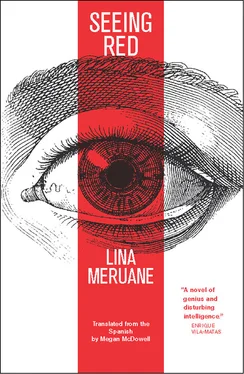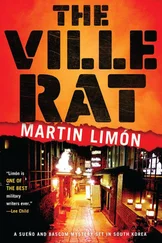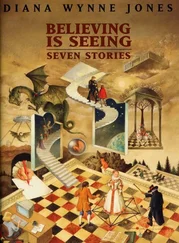Lina Meruane - Seeing Red
Здесь есть возможность читать онлайн «Lina Meruane - Seeing Red» весь текст электронной книги совершенно бесплатно (целиком полную версию без сокращений). В некоторых случаях можно слушать аудио, скачать через торрент в формате fb2 и присутствует краткое содержание. Год выпуска: 2016, Издательство: Deep Vellum Publishing, Жанр: Современная проза, на английском языке. Описание произведения, (предисловие) а так же отзывы посетителей доступны на портале библиотеки ЛибКат.
- Название:Seeing Red
- Автор:
- Издательство:Deep Vellum Publishing
- Жанр:
- Год:2016
- ISBN:нет данных
- Рейтинг книги:3 / 5. Голосов: 1
-
Избранное:Добавить в избранное
- Отзывы:
-
Ваша оценка:
- 60
- 1
- 2
- 3
- 4
- 5
Seeing Red: краткое содержание, описание и аннотация
Предлагаем к чтению аннотацию, описание, краткое содержание или предисловие (зависит от того, что написал сам автор книги «Seeing Red»). Если вы не нашли необходимую информацию о книге — напишите в комментариях, мы постараемся отыскать её.
This powerful, profound autobiographical novel describes a young Chilean writer recently relocated to New York for doctoral work who suffers a stroke, leaving her blind and increasingly dependent on those closest to her. Fiction and autobiography intertwine in an intense, visceral, and caustic novel about the relation between the body, illness, science, and human relationships.
Lina Meruane
Seeing Red — читать онлайн бесплатно полную книгу (весь текст) целиком
Ниже представлен текст книги, разбитый по страницам. Система сохранения места последней прочитанной страницы, позволяет с удобством читать онлайн бесплатно книгу «Seeing Red», без необходимости каждый раз заново искать на чём Вы остановились. Поставьте закладку, и сможете в любой момент перейти на страницу, на которой закончили чтение.
Интервал:
Закладка:
pure biology
Still breathing in that salty scent stuck to his shirt. Holding onto him, I kiss his mouth and his cheeks that grow gaunter every day, the corners of his eyes. A strange happiness moves through me when I feel the edge of his eye twitching under his skin. His living eyes. Ignacio pushes me away and plants a kiss on my ear. My fingers climb up his face again but Ignacio says please, don’t do that. He puts his temple next to mine, and again the happiness overwhelms me, the happiness of having an instant of his body for myself, just before they make us separate. What will you two do while I’m in there? Silence. A silence that keeps me from guessing what gestures are made, what faces. What will you do with so much time? It won’t be so long, says Ignacio, distraught, knowing that he’ll have three whole hours alone with my mother. Four, in the worst case scenario, two hours per eye. I understand that he’s repeating this to calm himself. According to Lekz, says Ignacio, he’s never spent more than four hours fixing a pair of eyes. He said it could even take less, if he hurries a bit. Don’t worry, adds my mother (I see her through your eyes, Ignacio, comforted to have company, fixing her hairdo), don’t you worry, dear, we’ll find some way to entertain ourselves. And she said it as if saying: alone at last. My mother will have Ignacio to interrogate, she’ll have him especially to besiege with those medical stories he hates so much and that I grew up listening to. Stories of medical errors, stories I’m addicted to. Ignacio holds me tightly and starts to tremble a little, he squeezes me, wrings me out, suffocates me; don’t leave me alone with her is what he seems to be saying. His heart speeds up. Anxiety heightened to the nth degree. But I, his shield against my mother, his defender and his secret torturer, I can’t protect him now. Let me go, Ignacio, I have to leave. Don’t be a stranger, he says. Here’s hoping, I say, and I raise a white cloth in farewell while a nurse’s soft hand takes my arm. It’s the hand of a Filipino woman who speaks to me slowly. And, seduced by her malignant voice, I let myself be led to the place where they will sacrifice me. She helps me climb up on the operating table. You won’t feel a thing, she assures me as she stabs me painfully with the IV needle, followed by the anesthesia needle. I lose my head with so much needle in my vein. Are you ok? she asks, and my being, this Chilena covered in a ridiculous flowered robe, tells her, pronouncing the words with difficulty, no, not at all ok, this table is very cold. Before I finish my complaint she throws a blanket over me, and the heat relaxes me, puts me to sleep. My new Filipino girlfriend takes me by the wrist, searches for my pulse, and breathes a what’s your name, what are they operating on, which eye first; but I’ve forgotten it all, I don’t know who I am and I can’t explain why I’m there in her arms, I only hope that she knows the answers in spite of her questions, that the questions are just a strategy to distract me from my teeth, which are chattering now. And I realize, because I recognize his throat clearing, that Lekz is now behind my head, that those are his hands straightening my head, arranging my cap, washing my corneas with a creamy cotton. I also realize that next to him is another oculist I remember vaguely, because she works in the same office as Lekz, because she is, I remember now, his wife. She’s going to assist him in the job. All in the family, in here and out there, I think, without retaining the thought. And maybe it’s my nurse who tells me to reach one finger up toward the ceiling, a finger of a hand that now weighs a ton and soon dissolves. The finger is no longer there. My hand isn’t there and neither is my arm. I’m not me anymore. Lucina vanished, her being is suspended somewhere in the hospital. What is left of her now is pure biology: a heart that beats and beats, a lung that inflates, an anesthetized brain incapable of dreaming, while the hair goes on growing, slowly, beneath the cap.
hours
This was seen by other eyes. How, from that first minute, Lekz fastened my eyelid back to keep it open. How he peered into my distended pupil. How he opened three holes in a triangle, one above, one to either side. How into each hole he inserted a different apparatus: a wire topped with a very strong magnifying lens, a multi-functional pincher that cut veins and cauterized wounds, and a light cable to illuminate the retina. Three metal filaments acting together, to prune and burn and patch for many more hours than the promised three or four. And this was seen by eyes not so far from me. How, while I was absent from myself, Ignacio and my mother fled the waiting room. How they went out to take a walk around the city, and, sick of wasting time, they went into the dive on the corner, shared a pizza and a warm coca cola, and smoked hurriedly from the same pack. The operation must be almost over, they said to each other in encouragement, walking hurriedly back. They sat in a hospital hallway and, obliged to carry on a conversation, they took out and polished their worst memories, one by one. How my mother had survived three mistaken diagnoses in a row: a sharp vertigo that was thought to be multiple sclerosis, a terminal brain tumor, an attack of intestinal colic interpreted as cancer. All errors that could have been fatal if they’d been true, she said — the victorious survivor, my mother — but they were only spots on x-rays. How Ignacio turned pale, because hearing about an illness made him experience every one of its symptoms. How anything could happen, my mother consoled him, but he shouldn’t worry, now he was part of a family of doctors, now he was protected from diagnostic errors. People used to think, my mother went on, changing the subject a little — though not much, only shifting the conversation so she could tell another story that Ignacio would rather have been spared — people used to think that Alzheimer’s was a form of dementia. That’s what my mother had! interrupted Ignacio, connecting again to the conversation. Dementia? No, Alzheimer’s. And my mother took advantage of that revelation to gather information about his family’s DNA, bombarding him with genealogical questions, drawing conclusions. So no one knows who your grandfather was? said my mother, taking mental notes, telling him that she had also barely met her father. What a coincidence, Ignacio told me she told him. Coincidence that my mother and his mother had only seen their fathers once. My mother to say goodbye to him when he was in the mortal throes of cirrhosis; his mother simply by accident. The two mothers had also coincided in their refusal to call the stranger before them father. Mine told her father, she told Ignacio: You are nothing to me. His told her father, and then Ignacio told my mother: I don’t know you, I only have a mother, and she’s more than enough for me. They confided so many stories, but with all the time they had, even family began to run out. Then they only stared at the time: my mother at the dead hallway clock, my Ignacio at his uncomfortable wristwatch. They took turns going out to the street to take drags from the last cigarettes, exhaling the smoke against the sticky windows. And whoever stayed inside just watched the parade of patients leaving the operating theatre escorted by Filipinos. But fewer and fewer patients were coming out, and the doctors must have been scurrying out through other doors. Janitors multiplied, armed with brooms and mops. And there they stayed, my mother, my Ignacio, watching the second and the third and the fourth hour pass, no longer knowing how many had gone by. They sat and stood, paced around the room, annoyed, downcast, drinking infinite coffees from the machine. No one came out to give them explanations, because there would be nothing to say until the operation ended, and the operation ceaselessly stayed its course. Lekz didn’t make time to send reports to the outside. He couldn’t have done it even if he’d had the time. He didn’t do it because he couldn’t see anything with his eye up against mine, so full of blood. He didn’t dare lift his gaze. He wouldn’t have ventured to blink, neglect the exact movements of those gadgets that lit, magnified, cut, and burned veins, possessed of a ruthless voracity. He had to control the energy in his hands, fear those feet of his, stiffened from so much pushing the pedals on the floor. Because hands, pedals, and feet, said Lekz, on finally leaving the operating room and finding Ignacio and my mother, who ran toward him as soon as they saw him; pedals and pincers, he said, pale from hunger, green from exhaustion, those instruments, he said, are not extensions of my fingers. They have life of their own and are ready, at the slightest slip, to yank a person’s sight out at its roots. Ignacio looked at my mother, who didn’t blink as she looked at Lekz, who was clearing his throat to add that once he was finally able to extract the viscous gelatin of blood that was my swamped vitreous humor, once he could finally examine how my right eye had turned out, he’d shuddered. But he told himself, he told them, right away, that he had to take advantage of the adrenaline, and he threw himself headlong into the left eye. He cut, it spattered, he cauterized and meticulously vacuumed the bottom of the eye until his arms started trembling. He washed his hands from the nails to the elbows, he rinsed his face and felt his nostrils vibrate, he dried the nape of his neck, but Lekz didn’t dare issue a verdict. Much less think about one. It was worse than we thought, he confessed, drawn, and he used the plural because his assistant or auxiliary or wife was behind him, still in scrubs, displaying the same monumental circles under her eyes. I have no idea, not the slightest idea, he repeated. To my mother. To my Ignacio, who also looked exhausted from the work of waiting. There was nothing to say about the future. Lekz proceeded to go back over what had happened inside my eyes, over several months. My mother listened, utterly hypnotized. Ignacio was utterly ill. His knees went weak, he staggered toward a corner, and without anyone noticing he’d gone, he pressed his slippery hands against the walls, listening, as though from a distance, to a muffled voice wafting in through a portal to the medical hereafter: we would have to wait another twelve or eighteen hours to know if Lekz had left me definitively blind. That means? my mother, her voice also a distant whoosh, wanted specifics. It means that if she sees light tomorrow, there are possibilities, intervened the assistant wife. If she doesn’t see anything, the doctor broke in, scratching his neck, stretching his shoulder blades like a tattered bird; if she doesn’t see anything, I don’t know, ma’am, we’ll just have to see. You’ll have to see, Ignacio told me he thought, now lying defeated on the floor. You’ll have to see, he repeated to himself before insulting Lekz very Spanishly, la madre que te parió , fuck the mother that bore you, and all doctors, while you’re at it. He put his dizzy head between his legs and that’s where he left it. His mother had advised him to do that when he was a boy; his mother, who wasn’t a doctor or a nurse and who knew no other work besides housework, his mother who had always been illiterate and was now very dead. Lower it. So you don’t faint. Take off your glasses. Breathe very deeply and hold your breath. Like that, his palms still on the floor tiles, Ignacio heard Lekz drag his feet as he moved away down the hall, and he also heard my mother’s high heels echo as she approached.
Читать дальшеИнтервал:
Закладка:
Похожие книги на «Seeing Red»
Представляем Вашему вниманию похожие книги на «Seeing Red» списком для выбора. Мы отобрали схожую по названию и смыслу литературу в надежде предоставить читателям больше вариантов отыскать новые, интересные, ещё непрочитанные произведения.
Обсуждение, отзывы о книге «Seeing Red» и просто собственные мнения читателей. Оставьте ваши комментарии, напишите, что Вы думаете о произведении, его смысле или главных героях. Укажите что конкретно понравилось, а что нет, и почему Вы так считаете.












